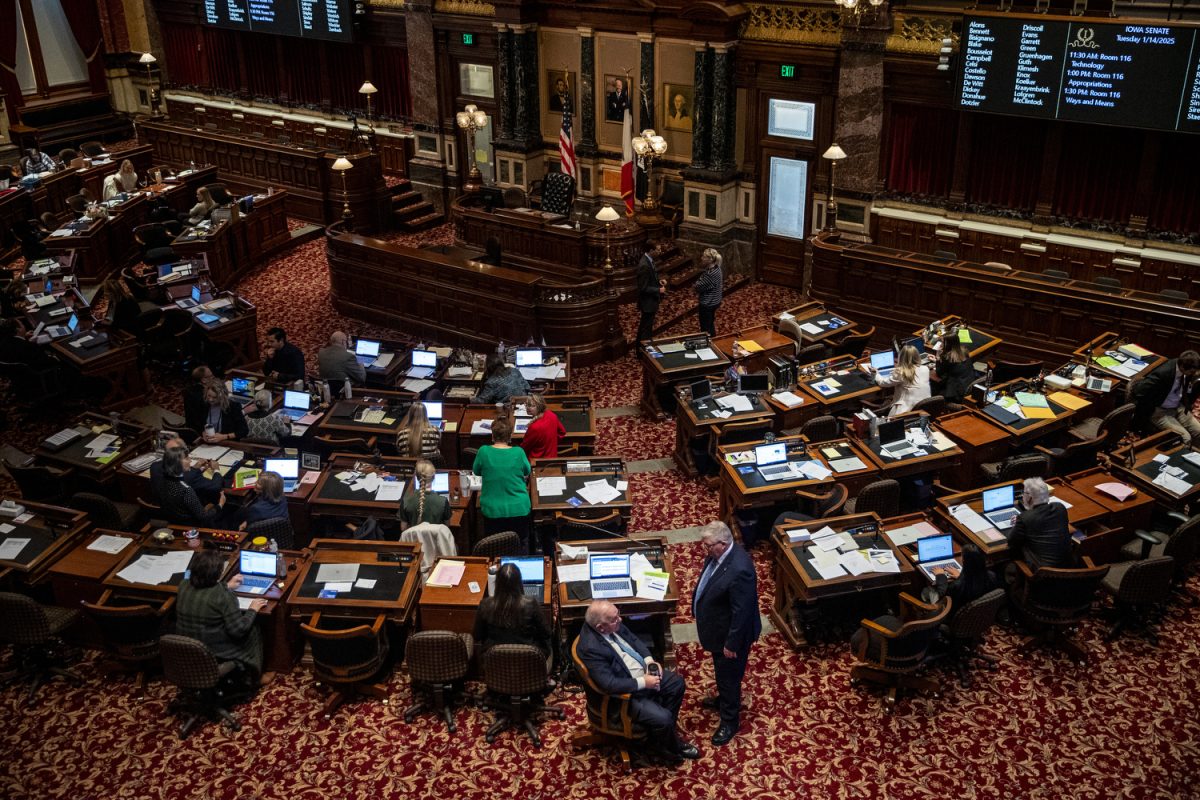Iowa lawmakers passed a bill to require law enforcement officers to enforce immigration laws or risk losing certification.
Under House File 946, law enforcement officers, including elected sheriffs, who knowingly or intentionally fail to comply with immigration laws will be investigated by the attorney general.
The bill passed in a 61-35 vote Wednesday, facing bipartisan opposition with three Republicans voting against the bill.
Under the bill, if the Iowa attorney general determines the law enforcement officer violated immigration law, and the officer is given a chance to correct their mistake but fails to do so, the case would be referred to the Iowa Law Enforcement Academy Council with a recommendation to revoke the officer’s certification.
The bill hands out a less harsh punishment than its previous version, which would have considered the violation a Class D felony, placed the law enforcement officer in prison for up to five years, and required a hefty fine.
Iowa Rep. Steven Holt, R-Denison, introduced the legislation and added the amendments to the bill.
“The intent for the law is to hold law enforcement officers responsible,” Holt said.
He said the Class D felony requirement was “overly harsh,” but decertification should be a possibility if the officer has been given a chance to comply and refuses.
“This is just one more step to ensuring that we’re serious when it comes to [immigration laws],” Holt said.
The legislation follows President Donald Trump’s crackdown on immigration. Utilizing ICE and multiple federal agencies, Trump launched his promised effort to enact the “largest deportation” in U.S. history.
Trump’s upheaval of immigration enforcement has led to nearly 23,000 arrests and 18,000 deportations in the past month, according to reporting by The New York Times.
Iowa Rep. Lindsay James, D-Dubuque, was among the Democrats in opposition to the bill and said the bill is difficult due to the complexities of federal immigration law.
“My concern with this bill is that it is undermining local law enforcement’s autonomy, and it places unnecessary strain on law enforcement resources,” she said.
The bill will be sent to the Iowa Senate for consideration, where there is no companion bill.
Iowa House sends hands-free driving bill to governor’s desk
Iowa House lawmakers approved a bill that would ban the use of cellphones while operating a vehicle on Wednesday, sending it to the governor’s desk and concluding a yearslong saga to enact reforms to the state’s distracted driving laws.
The bill, Senate File 22, passed 84-11 on Wednesday and would prohibit the use of cellphones or other electronic devices while driving unless they can be operated in “hands-free mode” or with a driver’s voice.
The bill passed nearly unanimously in the Senate last week and now awaits Iowa Gov. Kim Reynolds’ signature, which she is expected to give before it becomes law.
Reynolds called attention to the issue during her Condition of the State address in January but did not introduce her own legislation on the issue.
The bill would levy fines up to $100 for violating the bill and up to $1,000 if serious injury or death occurs. If an injury or death occurs, a driver’s license could be suspended. The incident would also be considered a moving violation and could establish habitual offender status.
Advocates for the bill celebrated its passage on Wednesday, saying it will help reduce traffic deaths from distracted driving.
Luke Hoffman, president of the Iowa Bicycle Coalition, said in a release Wednesday the state needs a hands-free driving law, and his organization has worked toward seeing legislation passed for nearly seven years.
“This law is the seatbelt law of our generation,” Hoffman said. “And we will be working in the coming months to educate the general public on how we can all change behavior so we can save lives together.”



